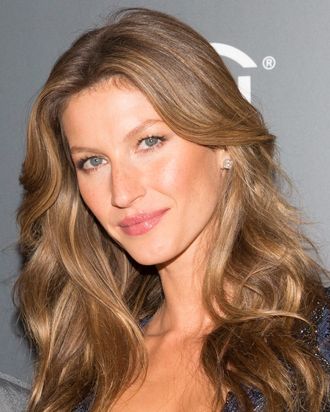
Do you get depressed every time you see Gisele’s perfect mane of hair, which only seems to get more lush and full with each new hair ambassadorship? So many women, even young ones, have concerns about the amount of hair they see floating down their drains after every shower.
According to the American Hair Loss Association, 40 percent of hair-loss sufferers are women. To understand the hair-loss process better and to learn about all the different modalities for treating it (particularly safe ones without side effects), Hair Days spoke to Dr. Alan Bauman, a hair-loss specialist based in Boca Raton, Florida.
Diagnosis: Your medical history is one of the most relevant things you can tell your doctor, even if it has nothing to do with your hair. Crash diets, minor hormonal imbalances, medications, and recent illness can all affect your hair. “A high fever from the flu or other illness can cause a shedding effect six weeks later,” Dr. Bauman noted. Be sure and mention it if you’re feeling tired, because that can be a sign that you’re iron-deficient, a common cause of hair loss.
Going Beyond What You Find in the Drain: If you’re really concerned about your hair loss, doctors can do very sophisticated testing using a hair-bundle trichometer, or as Dr. Bauman calls it, a “scientific ponytail.” The instrument can measure your hair and tell whether you’re losing hair or if the hair fibers themselves are getting thinner.
Hair-Growth Super Foods: Dr. Bauman touts the benefits of salmon for healthy hair, noting that it’s loaded with protein, vitamin B12, and iron. Go ahead and have a side of spinach with your salmon, because leafy green vegetables also contain iron, vitamins A and C, and calcium. Finally, snack on nuts, which contain alpha-linoleni acid and selenium.
Supplements: There are lots of magic recipes for hair-growth supplements floating around out there, but Dr. Bauman warns people to be careful before downing pills. You should never treat yourself with iron supplements — overdosing can be dangerous. Ditto for zinc, which has been getting a lot of attention online as a miracle supplement. Zinc can affect your hormone levels, so it’s not something you should be taking lightly. Dr. Bauman is a big fan of biotin and Viviscal, the supplement that contains fish protein.
Laser Treatment: If you know anything about lasers — certain types are commonly used for hair removal — the idea that you’d want to use one for hair regrowth probably seems counterintuitive. But low-level red lasers, whose beneficial effects were discovered in the 1950s after mice treated with the lasers exhibited increased wound healing and hair growth, are now common. “Low-level laser therapy is like photosynthesis in plants,” Dr. Bauman explained. Best of all, the lasers don’t cause side effects. This treatment involves a commitment, though. The units, which fit under a baseball cap, cost about $3,000 (handheld versions are $600 to $800) and aren’t covered by insurance. You wear one for 30 minutes every other day. You’ll see some improvement in your “scientific ponytail” measurement in about 90 days, and visual improvement in six months. You need to use it the rest of your life, because hair loss is chronic and progressive, but for many people it’s a more palatable option than a hair transplant.

